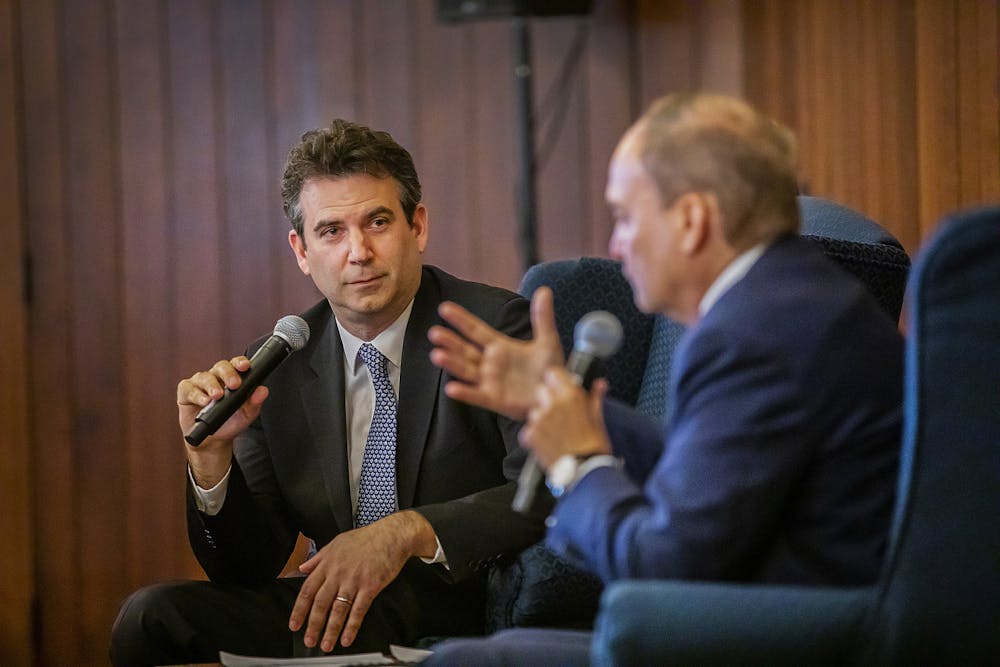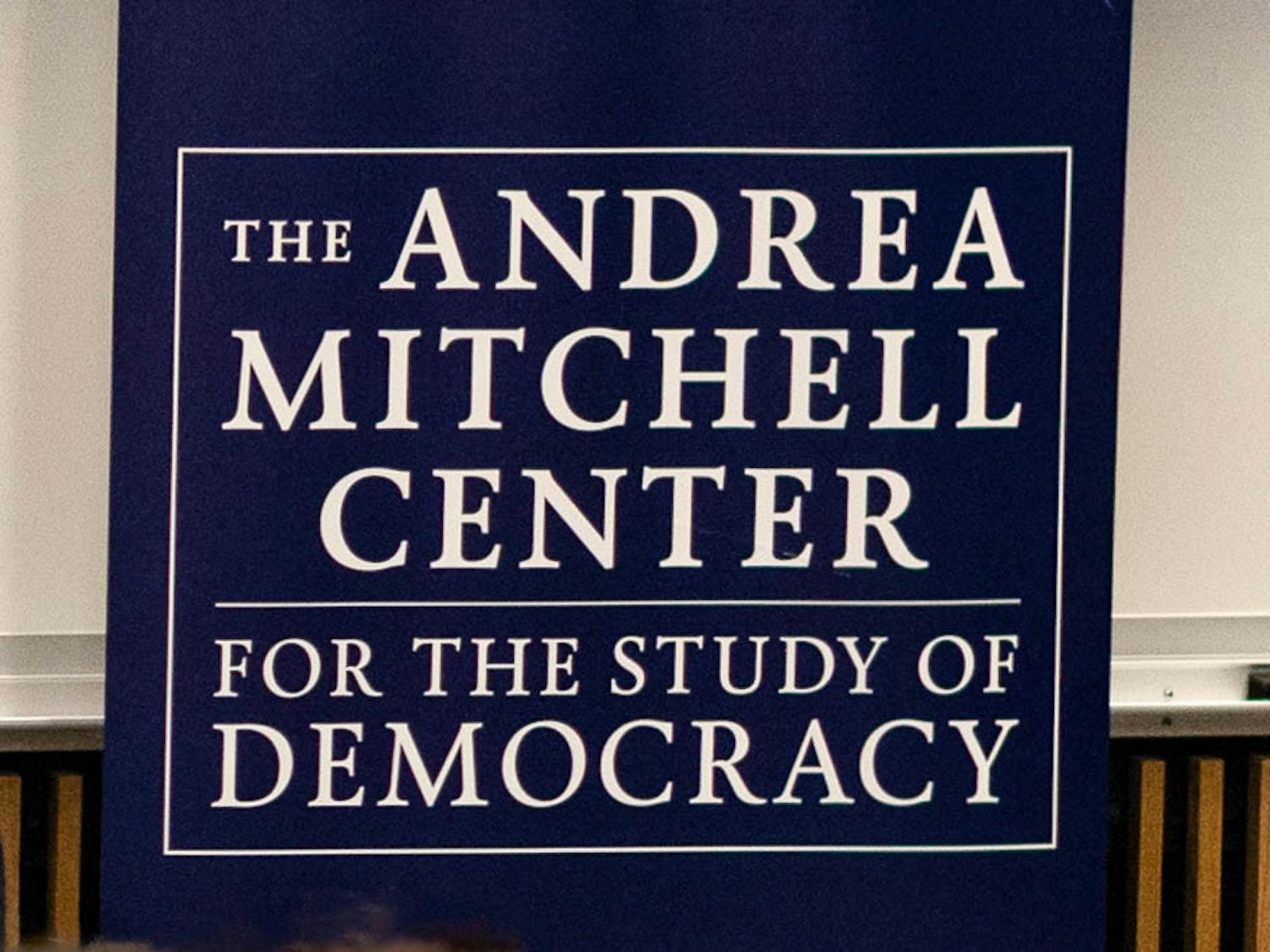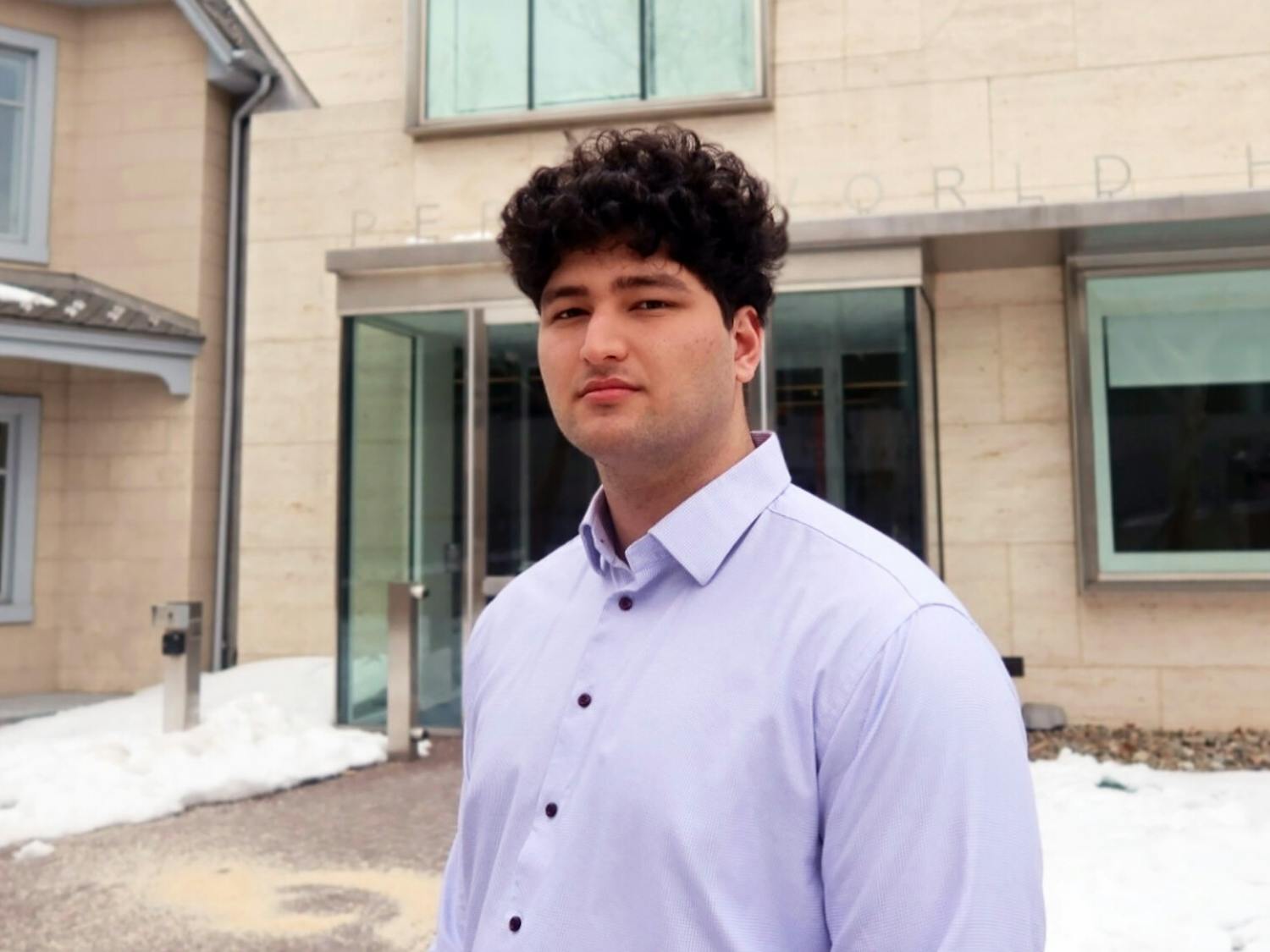The Russian government banned a Penn professor and five Penn affiliates from entering its territory, according to a March 14 press release from the Russian Federation.
Professor of Russian and Eastern European Studies Mitchell Orenstein and five Penn alumni were on the list of 227 Americans banned from entering Russian territory. The ban applies to people involved in “conceiving, carrying out and justifying the anti-Russia policy adopted by the current administration of the United States” and Americans “directly involved in anti-Russia undertakings,” according to the press release.
A request for comment was left with a University spokesperson.
The list of banned Americans includes academics from across the country, as well as members of the United States executive branch, business community, and media industry. The ban was implemented “to make sure that Washington understands the simple truth that any aggressive move will not go unpunished and will face a resolute response,” according to the press release.
Orenstein’s research focuses on the political economy of Central and Eastern Europe, the role of ideas in economic policy reform, and Russia’s hybrid war on the West. He is a senior fellow at the Foreign Policy Research Institute — a Philadelphia-based think tank that conducts research on geopolitics, international relations, and international security — and his published works include four books on the political economy and international affairs. He most recently taught MGMT 208, “Managing Globalization & Anti-Globalization” during the spring 2022 semester.
Orenstein did not respond to The Daily Pennsylvanian’s request for comment by time of publication.
The list of sanctioned individuals named 1990 College graduate Elise Giuliano, the director of the Program on United States-Russian Relations at Columbia University. In a written statement to the DP, Giuliano noted that the list includes academics who have spent their careers on the study and teaching of Russian politics.
"The accusation of Russophobia is not a serious one," she wrote. "The sanctions are targeted not as much at the Americans on the list as at Russia's population who are continually directed to feel hostility toward westerners."
RELATED:
Egyptian writer Abdelrahman ElGendy speaks at Penn about political activism, imprisonment
Former Polish president Lech Wałęsa speaks about the future of democracy at Perry World House
She said that — while she was personally saddened by the possibility that she would not be able to visit Russia until a "dramatic shift in political regime" — the sanction will not greatly affect her research, which has focused on Ukraine since the start of the Russian offensive in Donbas in 2014.
"Russia's war on Ukraine has caused so much dislocation and sadness; the experience of sanctioned Americans cannot compare to our Russian colleagues who had to leave their home or face repression, unemployment, or imprisonment," Giuliani wrote. "And it cannot compare to the millions of Ukrainians who have fled Ukraine since Russia's full scale invasion in 2022."
2010 College graduate Emma Ellenrieder — a trial attorney with the U.S. Department of Justice National Security Division’s Counterintelligence and Export Control Section — was included on the list. She did not respond to the DP’s request for comment.
The list also includes 2005 College graduate and University of Illinois Urbana-Champaign Associate Director of the European Union Centre Markian Dobczansky and 1980 College graduate Peter Fritzsche, a history professor at UIUC.
“While I am proud to serve with those who have done much more than I to examine the international misdeeds of Russia, the arbitrariness of the list itself confirms both the tyranny and insecurity of authoritarian government,” Fritzsche wrote to the DP.
Dobczansky, in addition to a B.A. in European History and German Studies from Penn, holds a Ph.D. and M.A. in Russian and Soviet history from Stanford University.
"It’s regrettable, but it won’t change my travel plans one bit," Dobczansky wrote of the sanction.
1971 College graduate Stephen Blank, a senior fellow at the Foreign Policy Research Institute, was also listed. Blank told the DP that it is a “great honor” to be named on the list, describing Russia as “a criminalized state, both due to its domestic repressions and its foreign wars.”
“It shows that at least the Russians are reading what we write about them and taking it seriously,” he said.
He said that his education in Russian affairs began at Penn, where he studied with Political Science professor Alvin Rubinstein and Professor Emeritus Alfred Rieber. Blank, who has published several books about European and Asian security, added that anyone who studies Russia should seek to objectively evaluate the current state of affairs.
“I don’t think an objective assessment of Russian reality leads in any direction other than a sustained critique of what increasingly appears to be a regressive mafia state that is fully consonant with much of Russian history, including, unfortunately, Stalin,” he said.









